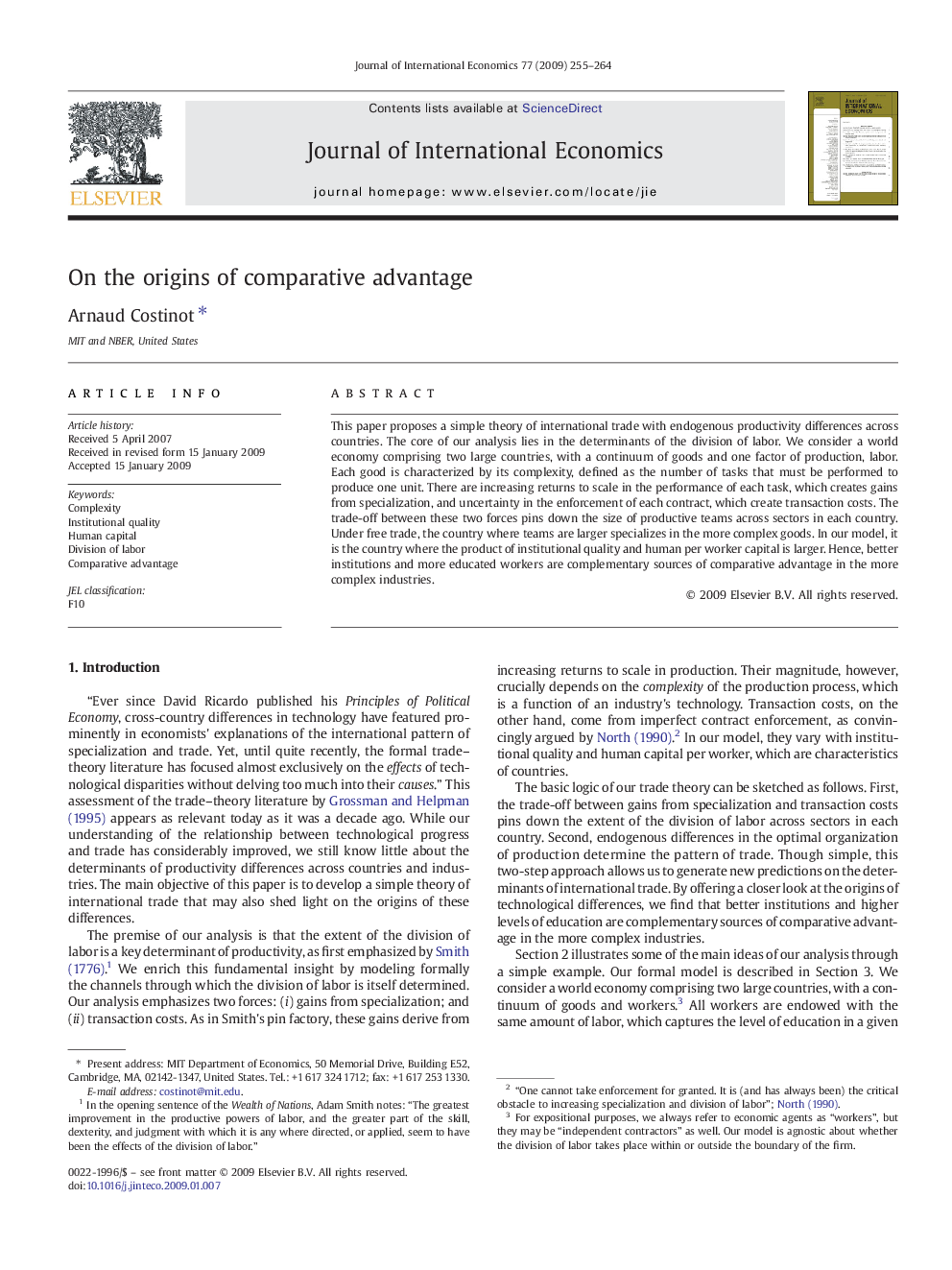| Article ID | Journal | Published Year | Pages | File Type |
|---|---|---|---|---|
| 962460 | Journal of International Economics | 2009 | 10 Pages |
Abstract
This paper proposes a simple theory of international trade with endogenous productivity differences across countries. The core of our analysis lies in the determinants of the division of labor. We consider a world economy comprising two large countries, with a continuum of goods and one factor of production, labor. Each good is characterized by its complexity, defined as the number of tasks that must be performed to produce one unit. There are increasing returns to scale in the performance of each task, which creates gains from specialization, and uncertainty in the enforcement of each contract, which create transaction costs. The trade-off between these two forces pins down the size of productive teams across sectors in each country. Under free trade, the country where teams are larger specializes in the more complex goods. In our model, it is the country where the product of institutional quality and human per worker capital is larger. Hence, better institutions and more educated workers are complementary sources of comparative advantage in the more complex industries.
Related Topics
Social Sciences and Humanities
Economics, Econometrics and Finance
Economics and Econometrics
Authors
Arnaud Costinot,
